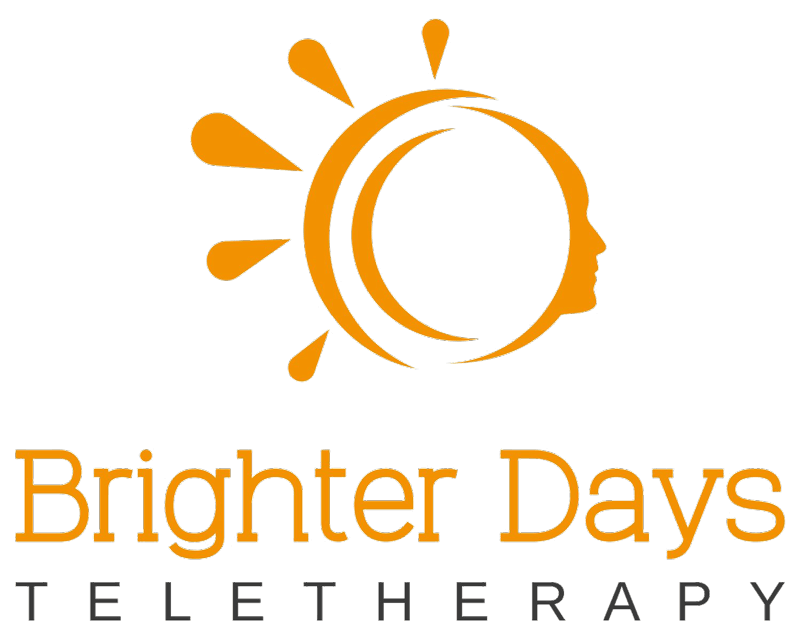
It’s time to get started
You’ve waited long enough. Now is the time to begin the journey to heal, grow, and flourish.
You are anxious all the time and find yourself struggling with building meaningful connections. Your nervous system is in overdrive leaving you feeling emotionally and physically exhausted. You just want to feel “normal” and be able to enjoy your life. Anxiety can be caused by underlying issues like early attachment trauma or even trauma experienced in adulthood.
By leveraging evidence-based approaches such as online Eye Movement Desensitization and Reprocessing (EMDR) and cognitive behavioral therapy (CBT), we aim to pinpoint the negative self-beliefs and maladaptive behaviors that are holding you back. Our therapeutic journey will focus on replacing these disempowering beliefs with self-affirming thoughts, effective coping mechanisms, and healthier relational strategies.
Whether your goals are overcoming past trauma, boosting self-esteem, increasing motivation, healing from emotionally draining relationships, or managing symptoms of anxiety and treatment-resistant depression, you're not in this journey alone. Together, we can unlock a life of greater emotional well-being and relational fulfillment.
What Types of Therapy Are Most Effective for Anxiety?
When it comes to tackling the multi-faceted challenges of anxiety, various evidence-based therapeutic approaches have proven to be highly effective. The goal is not just symptom relief, but equipping you with practical coping mechanisms and life skills to manage anxiety in a holistic way. Let's delve into some of the most successful forms of anxiety therapy that have been supported by scientific research.
Cognitive Behavioral Therapy (CBT)
One of the most commonly recommended therapies for anxiety disorders is Cognitive Behavioral Therapy (CBT). This approach targets negative thought patterns and behaviors, aiming to replace them with healthier coping strategies. Through CBT, you'll gain a clearer understanding of how your thoughts influence feelings and actions, and acquire skills to manage symptoms of anxiety effectively.
Eye Movement Desensitization and Reprocessing (EMDR)
EMDR is another robust treatment option, especially if your anxiety stems from traumatic experiences. This therapy involves processing distressing memories to reduce their long-term impact, enabling you to develop more adaptive coping mechanisms.
Exposure Therapy
For specific phobias or obsessive-compulsive disorder (OCD), Exposure Therapy can be an effective route. This method involves controlled exposure to the sources of your anxiety, helping you gradually become desensitized over time.
Mindfulness-Based Stress Reduction (MBSR)
Mindfulness techniques have also gained traction as an effective way to manage anxiety. Mindfulness-Based Stress Reduction (MBSR) combines mindfulness meditation and yoga to improve your mental well-being, teaching you how to become aware of your thoughts and feelings without becoming overwhelmed by them.
How Long Does Anxiety Therapy Take to Work?
The question of "How Long Does Anxiety Therapy Take to Work?" is a frequently asked and critical query for anyone considering entering therapy to manage their anxiety symptoms. It's important to understand that the effectiveness and duration of anxiety therapy can vary widely depending on several factors, such as the type of anxiety disorder, the severity of symptoms, and the chosen treatment approach.
Short-Term vs. Long-Term Therapy
Some therapeutic modalities like Cognitive Behavioral Therapy (CBT) offer short-term solutions that could show noticeable results within 6 to 20 sessions. However, if your anxiety is rooted in deeper emotional or psychological issues, or is part of a co-occurring disorder, long-term therapy might be recommended for more sustainable outcomes.
Immediate Symptom Relief vs. Lasting Change
Certain techniques and interventions, such as mindfulness exercises or medication like anti-anxiety prescriptions, can offer quick but possibly temporary relief from acute anxiety symptoms. These are often integrated into a more comprehensive treatment plan that aims for long-lasting change.
Individual Variation
Every individual responds differently to therapy. Some may experience quick symptom relief and significant improvement within a few weeks, while for others, it may take months to see noticeable change. Your commitment to the process, the quality of the therapeutic relationship, and outside factors like life stressors can all influence the rate of progress.
Tailored Treatment Plans for Efficacy
A tailored treatment plan designed by a qualified mental health professional can often accelerate the effectiveness of therapy. Adjustments to your treatment plan can be made based on regular evaluations of your progress.
Consistency is Key One essential element in determining how quickly therapy may work is your consistency in attending sessions and applying learned techniques outside of therapy. Regular attendance and active participation can significantly expedite your healing journey.
In summary, there's no one-size-fits-all answer to how long anxiety therapy takes to work. However, rest assured that proven therapeutic approaches are available to support you in managing your anxiety effectively. Whether you opt for Cognitive Behavioral Therapy, Eye Movement Desensitization and Reprocessing (EMDR), medication-assisted treatment, or a combination thereof, your commitment to the process is a crucial component of your healing journey.
Resilience is not the ability to stay out of the darkness, it is the ability to sit present in the darkness knowing the light will shine again.
Questions before getting started? Get in touch.
*Please note that we are an Out of Network provider. We can courtesy bill most major PPO insurances or provide a superbill for you to submit for reimbursement of therapy costs.


